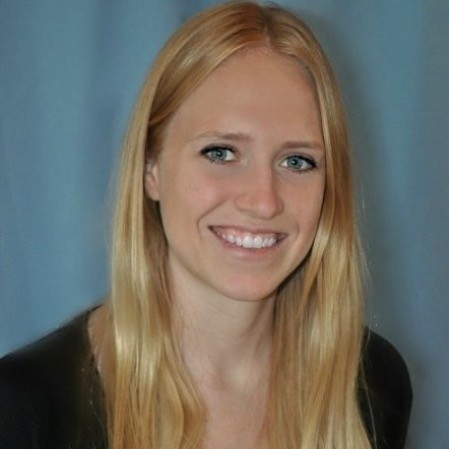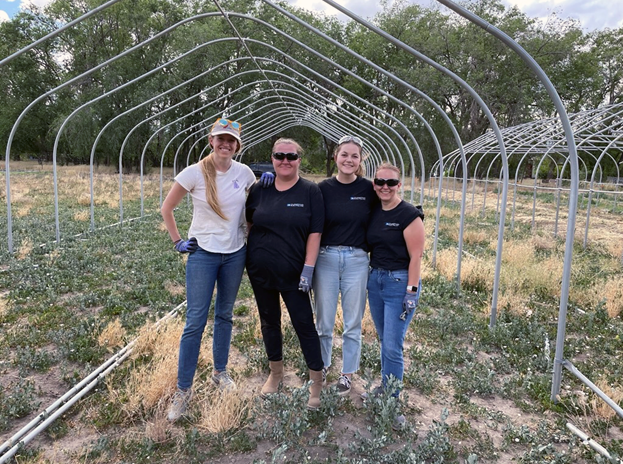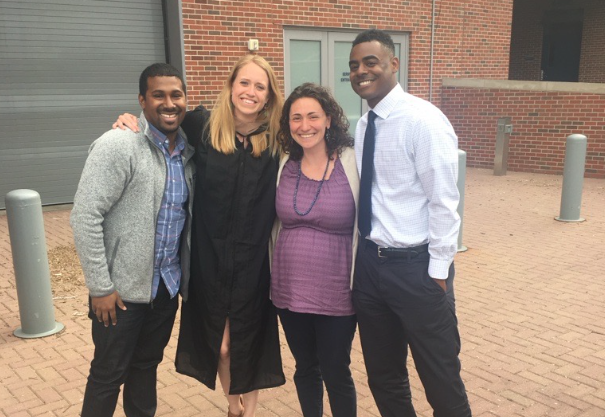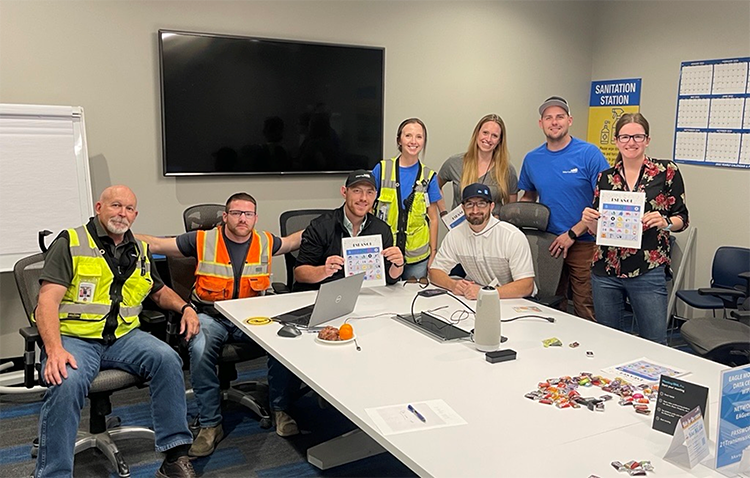SPOTLIGHT: Brianna Brazell (MBA/MS ’17)

Brianna Brazell (MBA/MS ’17)
Brianna Brazell (MBA/MS ’17) has parlayed her dual degree into a career in workforce development with a focus on Detroit. While an “Erber,” getting an MBA and MS at U-M, she participated in MBAs Across America, and was selected as the student Commencement Speaker for Ross graduation in 2017. We have been following her career, including positions at the City of Detroit, Mortenson, and Mission Throttle. Currently, Brianna is Senior Director of Strategy & Operations for the Detroit Regional Workforce Partnership at the Community Foundation for Southeast Michigan.
For our readers, can you describe what you’re doing with the Detroit Regional Workforce Partnership/Community Foundation for Southeast Michigan?
DRWP has a regional focus on southeast Michigan and approaches workforce development specifically from the lens of how we can improve the ways that business is engaging with the workforce development system to solve talent challenges.
I am the Senior Director of Strategy and Operations which is a fancy way of saying that I do a little bit of everything. The DRWP operates a lot like a startup, so it’s my job to build our strategic plan, manage our near and long-term goals, set our budget, fundraise, develop our portfolio of services, and represent our team out in the world.

Working with International Rescue Committee, building a hoop house on one of their farms.
Describe your journey from school through Mission Throttle, the City of Detroit, etc? Has it helped you create a network in Detroit?
When I first started at Mission Throttle, I was lucky to get staffed on a workforce development project in Detroit. That process connected me to the Mayor’s Office, who were looking to build out a workforce team focused on industry engagement and asked me to come over. All of the craziness with COVID left me looking for opportunities closer to family back in Utah, so I transitioned into a role helping a network of general contractors and Meta stand up a national workforce development program. My partner and my community were in Michigan, so it wasn’t long before I was itching to get back. My old boss at the City had recently transitioned to the Community Foundation and was preparing to incubate the newly formed Detroit Regional Workforce Partnership, so it just felt like the right fit at the right time.

Graduation, with Brianna’s MBAs Across America team.
What kinds of professional development or volunteer/board work have you taken on since graduating? What kind of sustainability work? How has it helped in your day-to-day work?
I sat on the Student Alumni Engagement Committee of my undergraduate Alumni Board as well as chaired the Board of Directors for a local chapter of the ACE Mentorship program. I have also participated in a pretty broad range of certifications and fellowships along the way. The volunteer and board work has honestly been more impactful than the formal professional development that I’ve done. It’s such a great way to get additional leadership experience, work on teams outside of your organization, and develop skills that may not be a part of your core work responsibilities.
From a sustainability perspective, my main extracurricular is the oh-so-slow journey that my partner and I are on to build a sustainable (both environmentally and financially) homestead/animal sanctuary. We purchased a small property in 2023 and have been stumbling our way through things like large-scale composting, rain catchment systems, and just generally keeping a herd of animals alive.
What are specific ways you can see social impact happening through your work?
I am lucky to have a job where I spend all day every day thinking about how to have a positive impact on our community, and specifically, what role the private sector plays in that impact. My work is hyper-focused on connecting people to living-wage jobs that feed into long-term, sustainable career pathways. What the impact is looks different all the time, but I can point to specific hiring policies that have changed to expand access to jobs for returning citizens or cross-sector partnerships that have formed to increase availability of childcare for low-income families.
How have you leveraged your U-M MBA and MS, and co-curricular experiences in your current position or previous positions? Is there a part of your education in particular that comes to mind?
The interdisciplinary component of the experience was so formative and has prepared me to sit in this position where I’m so often the intermediary between different types of organizations.

Brianna on the job with graduates of a Spanish class she ran at a construction site.
Do you have any advice for current students aiming to make a career in the social sector?
Learn to talk to people outside of your bubble – it doesn’t matter if you’re the smartest person in the room if nobody understands what you’re talking about. Even more importantly, learn to listen to people outside of your bubble. I love the sentiment that if you do all the talking, you won’t get any better, but if you shut up and listen, you may learn something new.
I’d also really encourage anyone interested in a career in the social sector to approach it with extreme humility. This work is hard, and the people doing it are badasses (not sure I’m allowed to say that?). They have so much to teach you about the value of just doing something. Having a plan and a framework and a credential are all great, but sometimes the best thing you can do is just show up, give a damn, and help get things done.

